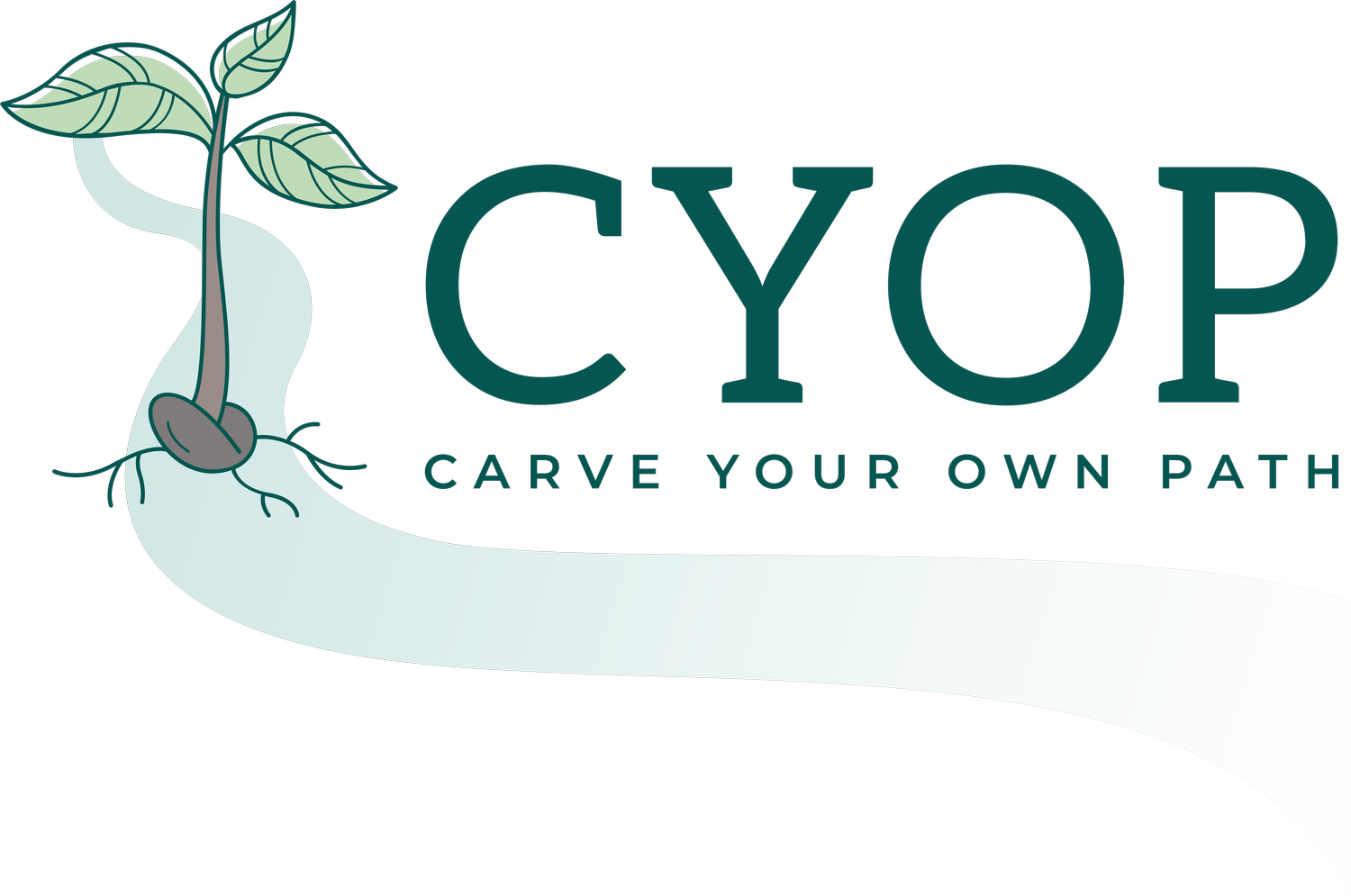Understanding Why Sometimes 501(c)(3) Nonprofits Charge for Services
When most people hear the word nonprofit, they immediately think of free services, volunteers, and donation drives, and they’re not wrong. And while many nonprofits do offer free or low-cost programs, the reality is a bit more nuanced, especially when it comes to young 501(c)(3) organizations like Carve Your Own Path, Inc..
As the owner of CYOP, I have done a ton of community outreach, participated in community events with other local organizations, and I found that I kept getting met with the feeling that, because we are a nonprofit, that means services are free. Even more, when I mention we only offer private pay services, I felt like I could physically see people be taken aback. I knew I had to not only change up the way I was talking about what we do, but also educate the community about who we are and are not.
Let’s break it down.
What is a 501(c)(3)?
A 501(c)(3) is a type of nonprofit organization recognized by the IRS as being tax-exempt because it operates for charitable, educational, religious, scientific, or literary purposes. In other words, these organizations exist to serve the public good, not to generate profit for owners or shareholders (because they don’t have any).
An added benefit? Donations to 501(c)(3)s are tax-deductible.*
So Why Do Some 501(c)(3)s Charge for Services?
It’s a common question—and a good one. If nonprofits aren’t supposed to make a profit, why would they accept payments for services or programs?
Here’s the key:
Nonprofit doesn’t mean free. It means mission-driven.
Charging fees can actually be part of how nonprofits stay afloat and fulfill their mission. Here are a few reasons why:
1. To Cover Costs.
Even a mission-driven organization has expenses. Rent, materials, utilities, staff salaries, insurance, technology—all these things cost money. Charging for certain services helps keep the organization running smoothly without relying solely on unpredictable donations or grants. At CYOP, we understand how a safe, peaceful, and welcoming environment supports the healing process. When a person feels safe, they are less likely to have their natural defenses up, that can sometimes lengthen the time it takes to develop rapport with their therapist and begin the work.
2. To Sustain Their Programs.
A small, reasonable fee can help keep a program available long-term. Although CYOP does receive some grant funding, these are time and revenue-limited and cannot be relied on for consistent organizational revenue. Think of it like this: CYOP provides affordable therapy, and a sliding-scale fee helps to pay for competent and ethical therapists, admin support, and program growth, allowing them to serve more people over time.
3. Promote Commitment.
Clients who invest financially may be more engaged and committed to their wellness journey.
4. Protect Privacy and Ensure Individualized Care
Some organizations serve historically and systemically marginalized and oppressed populations. CYOP is one of those organizations. Because we specialize in serving LGBTQIA+ individuals and women, especially given the socio-political climate, protecting our clients’ information is of top priority.
Supporting CYOP’s Mission.
By paying for services or donating, you contribute to CYOP’s ability to:
Provide individualized, holistic, and inclusive mental health care.
Offer low or no-cost therapy options.
Host and attend community wellness events.
Educate other health and wellness professionals.
Support marginalized populations with culturally responsive care.
Your support ensures that CYOP can continue to serve the community effectively.
Important Distinction: Profits vs. Purpose
The main difference between a nonprofit and a for-profit business isn’t whether they make money—it’s what they do with it.
For-profit companies distribute earnings to owners or shareholders.
501(c)(3)s reinvest every dollar into their mission and programs.
Final Thoughts
Next time you see a nonprofit charging a fee, know this:
They’re not “going corporate.” They’re finding smart, sustainable ways to keep doing good work for the long haul.
Nonprofits are passionate about their mission, and sometimes, charging for services is one of the most responsible ways to stay on mission.
*Carve Your Own Path, Inc. is recognized as a tax-exempt public charity under Section 501(c)(3) of the Internal Revenue Code. Contributions are deductible to the extent allowed by law.
